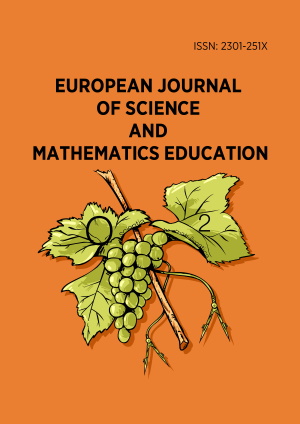Research Article
A field study examining success factors of university-school-collaboration
More Detail
1 Biology Didactics Department, Bielefeld University, Bielefeld, Germany* Corresponding Author
European Journal of Science and Mathematics Education, 3(3), July 2015, 219-232, https://doi.org/10.30935/scimath/9433
OPEN ACCESS 2494 Views 1250 Downloads
ABSTRACT
With decreasing numbers of students pursuing a career in science (OECD, 2008), the call for educational reforms building a basis for an interest in science is great. Cooperation between schools and universities are an important aspect of these reforms, as they aim at sparking an interest in science (Robert Bosch Foundation, 2005). The Ministry of Education of North-Rhine Westphalia has also made these collaborations a mandatory part of the professional development of young students in Germany.
In order to determine the connection between the success factors diversity of the human resources, financing, public relations work, as well as evaluation and the actual success of such projects, a questionnaire with 26 items, including open questions, was developed for a quantitative approach to the topic. The survey was mailed to 119 institutions, schools and universities, in Germany to find out about active cooperation.
Out of the 119 institutions asked to take part in the survey, only eight were willing to do so. Therefore, the results are of an exploratory nature and can only indicate certain tendencies.
The results reveal that the involvement of teachers and teacher trainees seems to be important for pedagogical exchange. Financing was mainly realized through external funding and not through the state. There was also a call for improvement in terms of money available for the projects. Public relations activities as well as regular evaluation led to higher public recognition. Consistent evaluation is also seen as a crucial factor for the development and improvement of collaborative projects.
In order to determine the connection between the success factors diversity of the human resources, financing, public relations work, as well as evaluation and the actual success of such projects, a questionnaire with 26 items, including open questions, was developed for a quantitative approach to the topic. The survey was mailed to 119 institutions, schools and universities, in Germany to find out about active cooperation.
Out of the 119 institutions asked to take part in the survey, only eight were willing to do so. Therefore, the results are of an exploratory nature and can only indicate certain tendencies.
The results reveal that the involvement of teachers and teacher trainees seems to be important for pedagogical exchange. Financing was mainly realized through external funding and not through the state. There was also a call for improvement in terms of money available for the projects. Public relations activities as well as regular evaluation led to higher public recognition. Consistent evaluation is also seen as a crucial factor for the development and improvement of collaborative projects.
CITATION (APA)
Wegner, C., Janzen, N., & Zehne, C. (2015). A field study examining success factors of university-school-collaboration. European Journal of Science and Mathematics Education, 3(3), 219-232. https://doi.org/10.30935/scimath/9433


 The articles published in this journal are licensed under the CC-BY Creative Commons Attribution International License.
The articles published in this journal are licensed under the CC-BY Creative Commons Attribution International License.